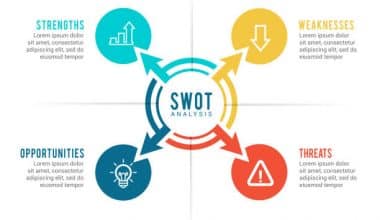Now that you have planted your business idea; turned an abstract concept into something more concrete, comes the question: how do I finance my business growth? Sales revenue, Net Promoter Score, monthly recurring revenue, customer loyalty and retention, Lead-to-Client conversion rates, and employee happiness are business metrics or key performance indicators essential to measure your growth.
Growth requires access to capital; you need cash to make sustainable investments, upgrade equipment, hire more staff, and expand your business. With 29% of small businesses failing due to lack of capital, let us show you the different financing options you can avail!
Financing Your Business With a Good Credit Score
Remember: financing options can vary according to rates, payback terms, approval requirements, credit scores, and more.
- Traditional Bank Loan
Banks provide a traditional loan, which you must pay back plus interest and additional fees in installments over a particular period. There is a high chance you can get rejected because banks require a high credit score (about 680+), healthy financials, and collateral such as your house or property. Banks typically charge lower interest rates but higher fees. These can include monthly service fees, initiation fees, and credit life. The loaning process may last between one to three months.
Understand any covenants associated with the loan, as it can prevent you from spending on certain things or require specific business performance. If you spend on an emergency, the bank may force you to pay the total amount in a shorter time or go after your business or property to get the payment.
- Small Business Financing Program
The federal government backs programs like the Canada Small Business Financing Program (CSBFP) and shares risks with lenders, such as credit unions or banks. This includes two types of borrowings: term loans to finance production equipment, buying franchises or lines of credit for working capital costs, or day-to-day business operations.
The interest rate can be fixed or variable, but if it is variable, it cannot be more than 3% of the financial institution’s lending rate. Generally, term loans require a credit score of 680. You need an excellent business record to borrow at lower scores, such as significant annual revenue.
- Opening a Business Line of Credit
A line of credit allows you to borrow what you need (up to your maximum limit set) that you need to pay back later. Unlike traditional banking loans, which can set limits, you can use them for operating or day-to-day business costs like supplies, covering payroll, marketing campaigns, or inventory. It is often offered as an unsecured debt, meaning no collateral and variable interest rates exist. You may have to secure your line of credit with a blanket lien on your assets to draw higher amounts.
The bank will review your financials annually to renew the line of credit, meaning you must maintain a good credit score. You need a credit score of at least 670. Otherwise, it may be difficult for you to get approved. The application process can be slow as your bank may require tax returns, cash flow statements, personal information, etc. Another challenge is that your debt can keep adding up, missed payments can lead to higher costs in the future, and you can find yourself in default, so stay on top of your payments.
Financing Your Business With Bad Credit
Getting a loan with bad credit is difficult but not impossible. Here are options you can consider.
- Bootstrapping
Bootstrapping describes a situation in which you rely on your personal finances – savings, personal credit lines, a cash runway, credit cards, personal loans, or operating revenues of your company to fund your business. This allows you to take control over all decisions due to the absence of stakeholders, but it can create financial strain or risks, as you can’t cover emergency costs. As you operate with limited resources, you may have to cut costs, such as not offering delivery services, or reduce business operations, such as only selling to specific areas.
- Payday Loans
Payday loans, also called check advance loans, refer to short-term borrowing that charges high-interest rates and varies according to how much you earn. These are a type of unsecured personal loan as they don’t require any collateral and are due on your next payday.
Payday loans charge high interests and don’t check your ability to pay back. Still, you can avoid debt traps by strategizing a repayment plan or renegotiating with your lenders. If you urgently need cash, have bad credit, cannot qualify for a traditional loan, and are confident you can pay it back within the next payday, go for payday loans.
Your lender must be licensed, so laws, such as the Payday Loans Act, prevent you from being taken advantage of. My Canada Payday is licensed and entirely online. You can receive your advance through e-transfer instead of going to a storefront.
- Angel Investors
These are wealthy or high-net-worth individuals willing to invest in a company if they like your business idea to gain ownership equity, a seat on board, or a return on their investment for some percentage. Angel investors don’t require a high credit score, but they look at your credit history to ensure you are not a credit defaulter.
They can offer seed money (financing at your initial launch) or ongoing cash injection. Angel investors expect decision-making power and reduce your control, such as over product development. Ensure you negotiate reasonable terms so it doesn’t cut into your profit.
- Venture Capitalists
A venture capitalist provides companies with capital in exchange for equity. They can help when you want to expand or commercialize your product when you don’t have access to equity markets (stock markets). They will buy a stake in your business and look for a large return on investment. They look at your income potential rather than your credit score and tend to invest more than angel investors.
The process can be lengthy as venture capitalist companies exhibit due diligence to ensure a suitable partnership. You have to forgo decision-making power, and they can pressure you to grow fast to get their money back, meaning your goals may not align.
- Improving Internal Operations
Instead of relying on external funding, improve your internal operations to get funds by optimizing your cash flow management strategies, such as delaying equipment purchases, outsourcing business activities, changing pricing rates, invoicing customers on the spot, improving forecasting, and more.
Endnote
There are a plethora of options available to finance your business growth. Carefully consider your options and current scenario to pick the most suitable one. If you can wait, go for traditional banking loans, but payday loans are available if you need urgent cash on hand. Keep striving hard to allow room for your business to grow and succeed among its growing competition.






